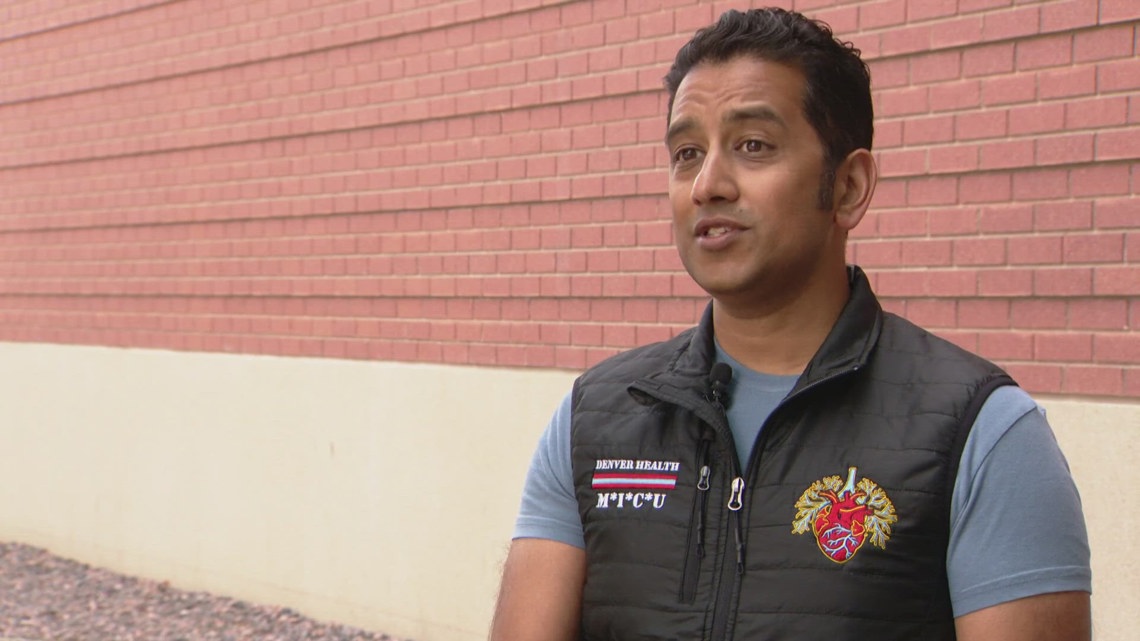
5 years after COVID-19, impacts from the pandemic are still felt, ICU worker says
How did your country report this? Share your view in the comments.
Diverging Reports Breakdown
Denver doctor recounts ICU struggles in COVID-19 pandemic
Health care workers overcame fears to care for COVID-19 patients, as hospitals overflowed. Dr. Anuj Mehta: “We knew it was coming and it was kind of like that slow motion car wreck that you watch on like on a YouTube video” The politics of states, from mask and vaccine mandates to who reopened businesses when, did impact the numbers of people getting seriously sick, he said. But as funding for public health is continually cut and pushed to the side, he says it makes it harder to prepare for a future pandemic. “I think that definitely some of our vaccine mandates or masking mandates decreased the spread, blunted the peaks and definitely saved lives,” MehtA said. “But unfortunately, what we saw over the course of years is that public health, especially in certain states, is continuing to get cut or getting hit every day,” he said, “and maybe we never have to have another shutdown or cut of funding for hospitals or public health facilities”
DENVER — Five years ago, as COVID-19 took hold, businesses were shuttered, kids learned from home and hospitals filled with patients who were seriously ill.
But health care workers around the country put aside their own fears, working long hours to care for those with COVID-19.
“We knew it was coming and it was kind of like that slow motion car wreck that you watch on like on a YouTube video,” said Dr. Anuj Mehta, a pulmonary critical care physician at Denver Health.
COVID-19 took weeks to spread around the world. Mehta saw the spread up close – slow at first, then faster than many imagined.
“We finally got hit in March of 2020 and all of a sudden, it was like it was like a switch on the light. It turned from one patient, two patients to 40, 50, 60, 70 patients and then eventually, our hospital was really full with patients with COVID-19,” Mehta said.
In the early days, Mehta said they were learning about coronavirus as they went.
“A lot of medicine is not knowing exactly what’s wrong, but utilizing our past experience and the best data we have to do the best we can for patients and what we did in March and April of 2020 changed dramatically by the time we got to October and November of 2020 as we learn more about the disease and the virus,” Mehta said.
As the hospital filled up, Mehta said Denver Health’s third floor was converted into a new ICU. Supply and space suddenly became tight.
“There were definitely times where, you know, we were down to our last 10% of ventilators or when we were down to our last one or two ICU beds,” Mehta said. “The other dimension I think that was really hard was that COVID, especially early on, tended to affect entire families at once. It was super infectious. It spread really rapidly.
“And you’d see five or six members from an entire family in the hospital. And you know, there were times where we’d have grandma and grandpa in the ICU, mom and dad on a regular floor. So not on a ventilator, but still really sick, and the kids at home being taken care of by relatives,” Mehta said.
Often, it was who wasn’t allowed in that hit the hardest.
“I think one of the things that really affected people throughout the pandemic was when we couldn’t have visitors. Family members were really worried that their loved ones would die alone. And you know, Denver Health, we have a saying, ‘Nobody dies alone,'” Mehta said. “We have a whole system of like making sure a nurse or a physician or somebody is with the patient as they’re passing and I remember holding people’s hands as they took their last breaths because their family couldn’t be there, but I was able to tell that family your loved one didn’t die alone.”
Taking calls from hospitals from Texas up to Alaska, asking if they had an ICU bed for a patient, Denver Health cared for everyone they could. Mehta said the state’s plans and policies helped.
“I think that definitely some of our vaccine mandates or masking mandates decreased the spread, blunted the peaks and definitely saved lives. It’s impossible to quantify, but definitely saved lives,” Mehta said.
The politics of states, from mask and vaccine mandates to who reopened businesses when, did impact the numbers of people getting seriously sick, Mehta said. Those same measures led others to lose business, their jobs and even health insurance.
Mehta says the full impact of the pandemic is something that will be studied, analyzed and looked at for years to come.
But as funding for public health is continually cut and pushed to the side, Mehta says it makes it harder to prepare for a future pandemic.
“My hope during the pandemic was that people would realize that public health that operates at both the state, federal and local levels would be something that we should [say], ‘Hey, this is something we should invest in so we can see this coming, deal with it, and maybe we never have to have another shutdown,’ or we never have to have more mask mandates or something like that,” Mehta said. “But unfortunately, what we saw over the course of years is that public health, especially in certain states, is continuing to get cut. We know that federal funding for public health infrastructures are definitely getting hit and their emissions are changing. We see that at the [Centers for Disease Control and Prevention] every day.”
But hospitals like Denver Health, Mehta said, are staying sharp for a global event they hope doesn’t come around again.
